Exploring Isabela – A Natural Wonderland
This is my third post from the largest of the Galapagos Islands, Isabela. In the first one we marvelled at the unique Galapagos wildlife found both on and below the surface of the waters of Tintoreras Islet. In the second we sought out the famous giant tortoises for which the islands are known. In this one we will continue exploring Isabela by visiting a landscape so unearthly that it positively makes one shake your head in amazement. Join this Adventures Abroad group as we snorkel with sharks and sea turtles and then hike to the rim of an enormous volcano seeking new species along the way.
Exploring Isabela – Los Toneles
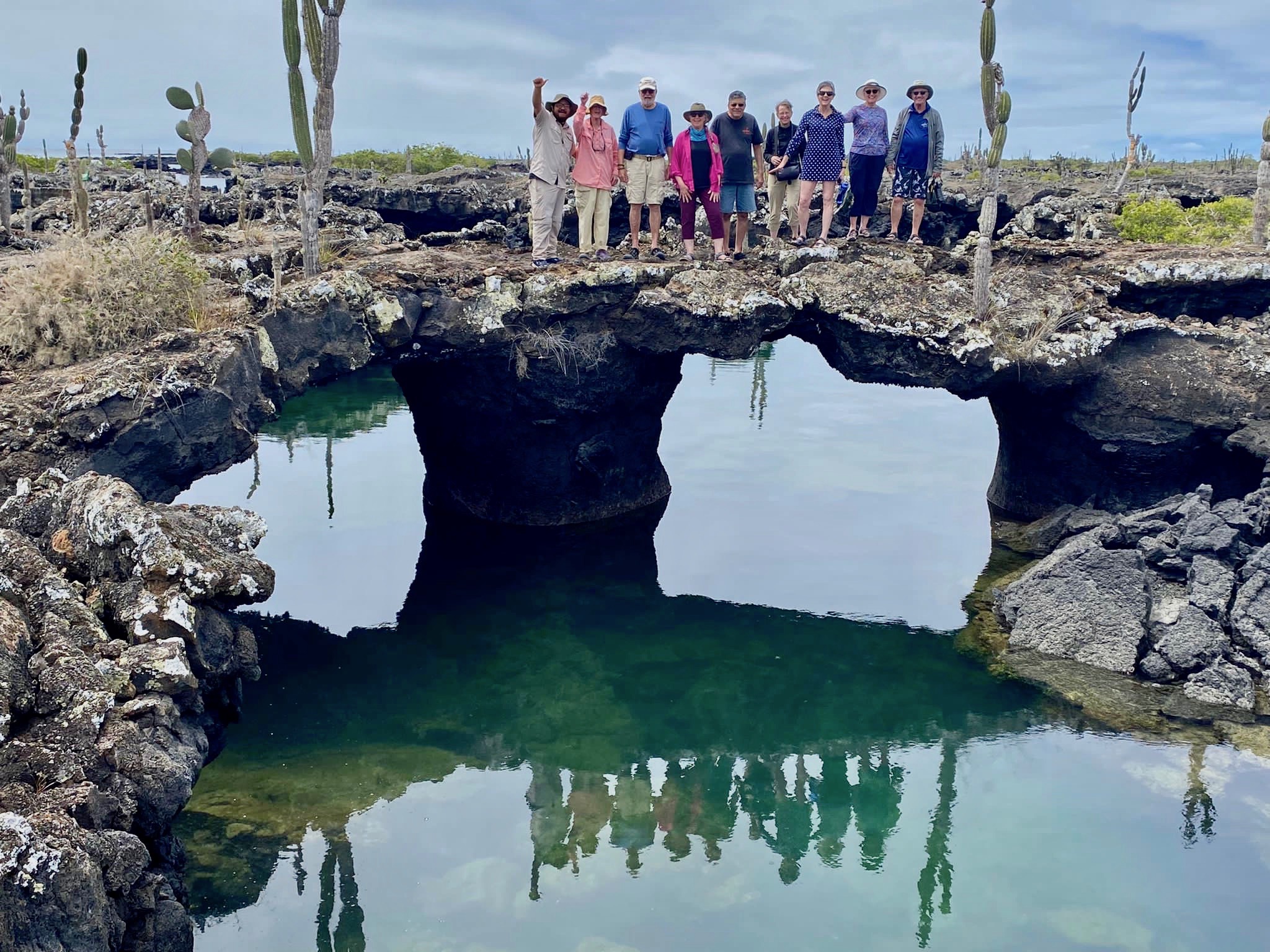
One of the most popular places to visit on Isabela is an area known as Los Toneles or The Tunnels, an absolutely spectacular volcanic landscape that is fun to explore both on land and in the sea. That’s where we are headed first this morning as we take the bus the short distance from the hotel to the landing from where we visited Tintoreras Islet yesterday.
We divide our group into two once again. This is our compadres heading out on a boat similar to the one Alison and I are on.
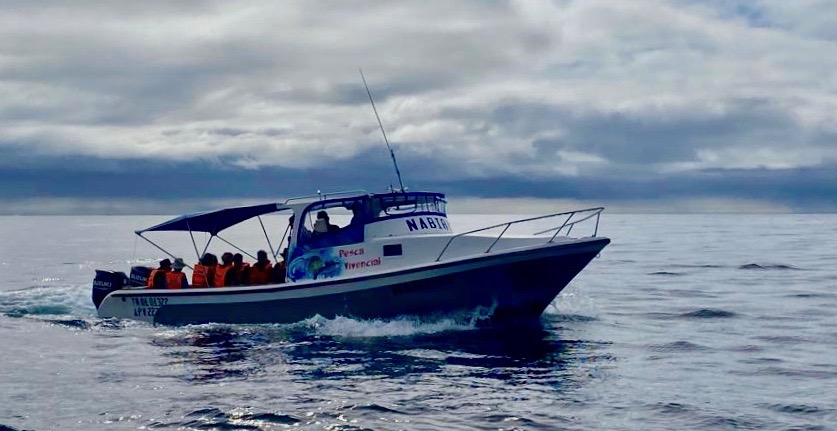
Today’s trip will involve a much longer boat ride alongside the shores of Isabela with a couple of stops on the way to see some more of Galapagos’ unique fauna starting with a colony of Nazca boobies. These striking black and white birds were only identified as a separate species in 1902 as a result of ornithological work done right here on Isabela and other islands of the archipelago. Like almost all species on these islands they are not in the least perturbed by our presence.
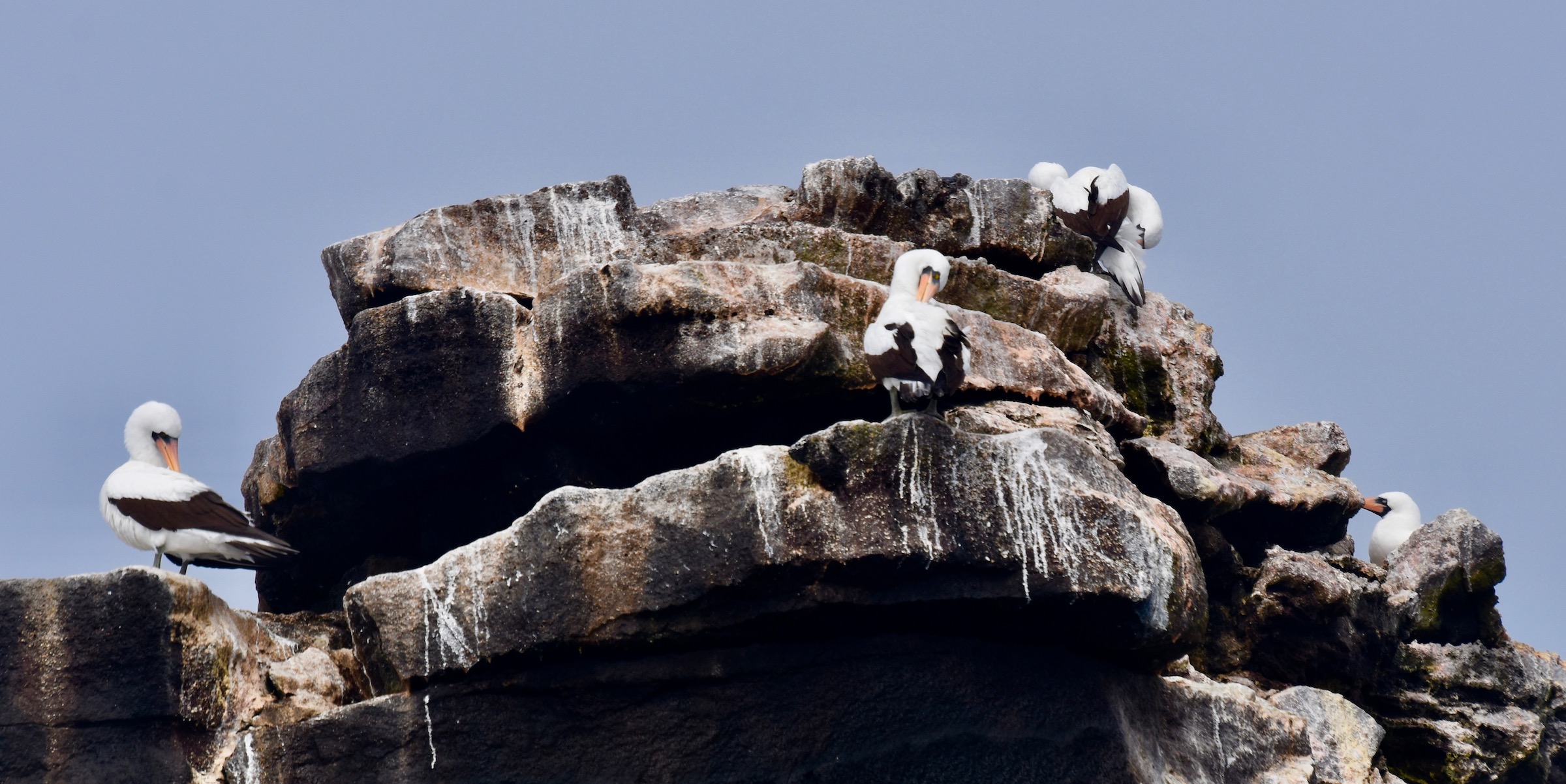
While the Nazca boobies nest on cliffs on islets away from the larger mainland of Isabela, not so their cousins the blue-footed boobies who we first encountered while exploring Isabela on our first marine sojourn. There are quite a few of them sitting on the rocks and our captain takes the boat in for a closer look.
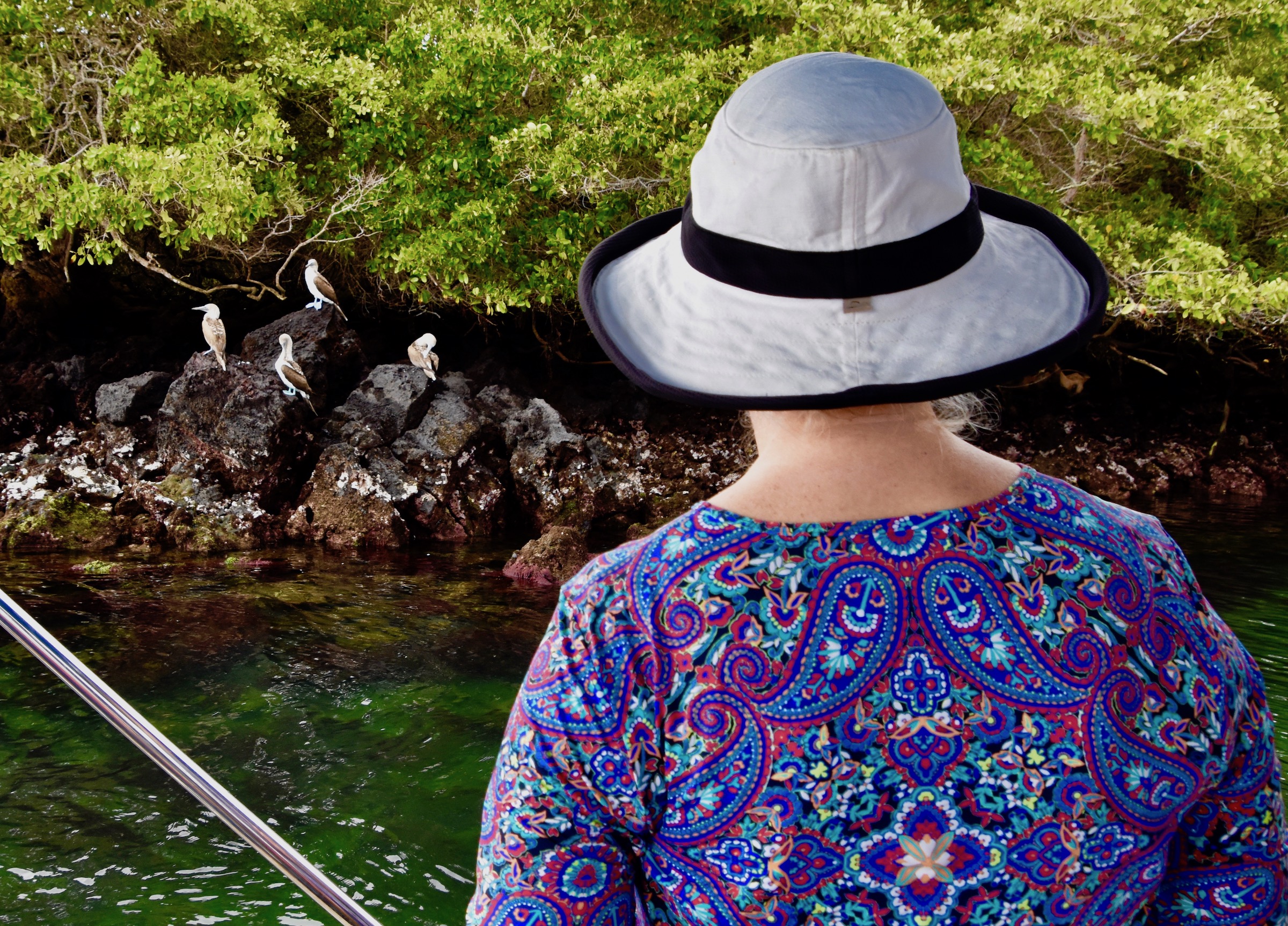
You cannot help but be amused by the look of these birds as they stare as intently back at us as we do at them.
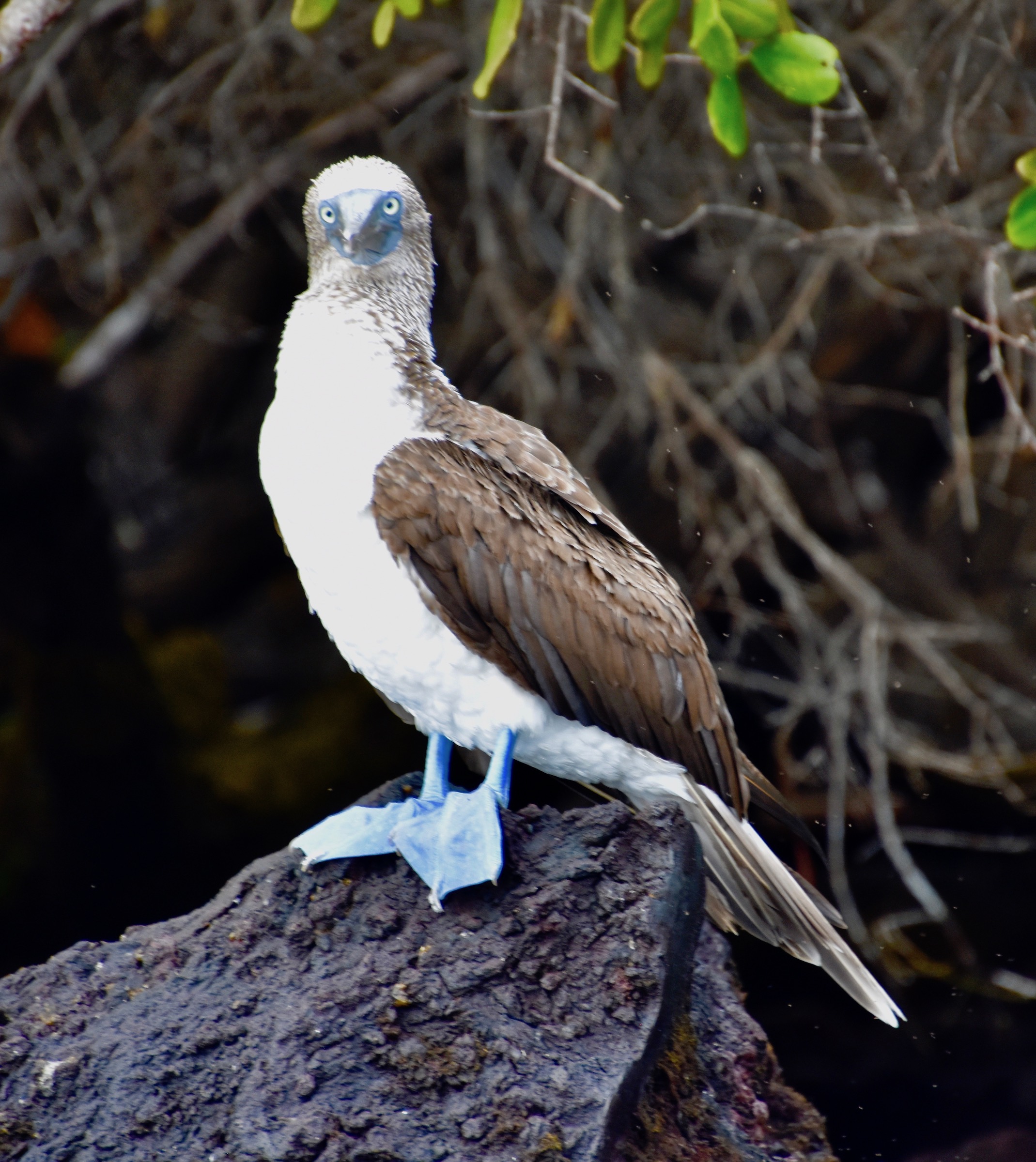
While I have observed green sea turtles in many places around the world, nowhere are they as seemingly abundant and nonchalant as those in this area of Isabela. We literally see one surfacing almost every minute while we make our way to Los Tuneles. Here is a group of three just off the starboard.
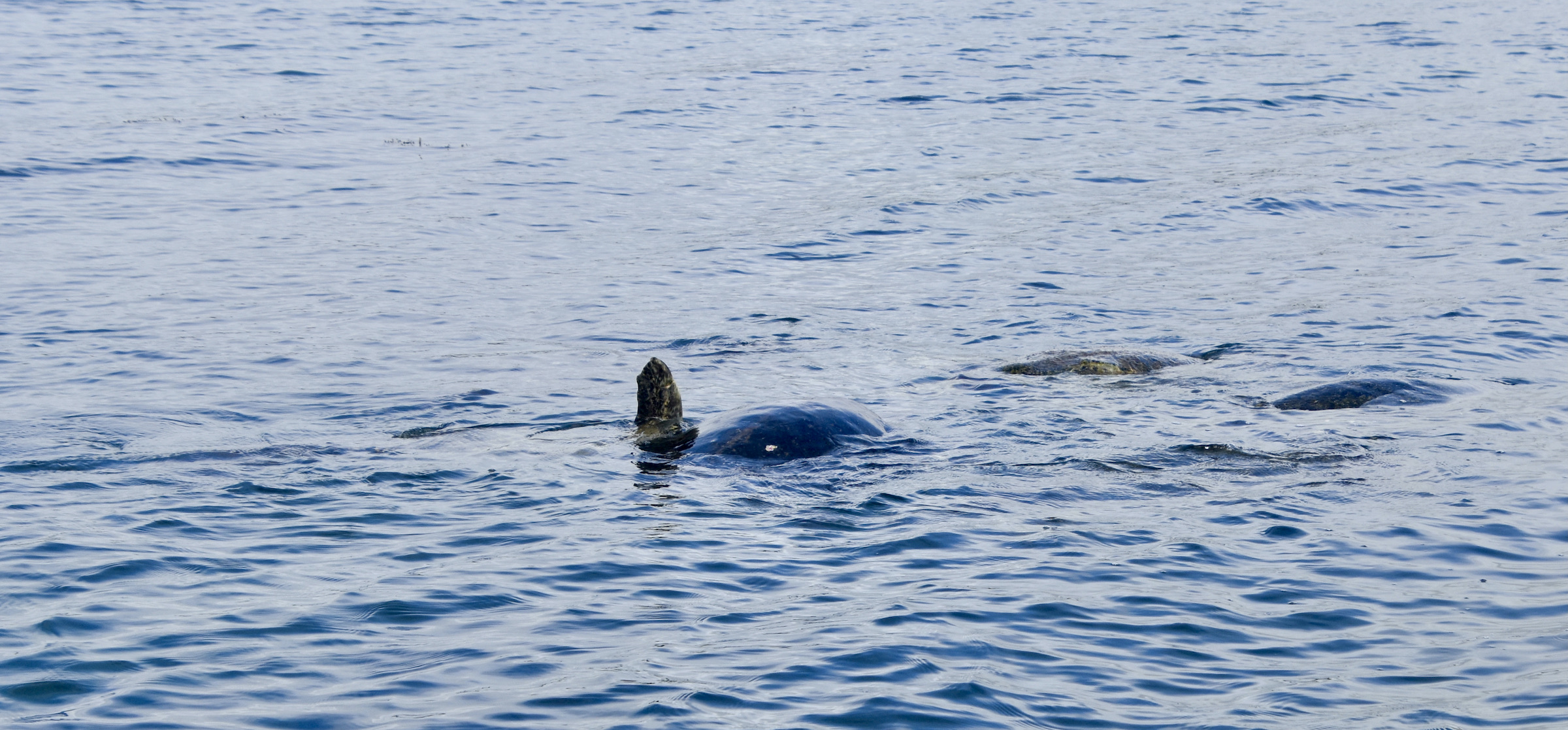
The next thing of note is one of nature’s red in tooth and claw moments. Although it is difficult to make out from the photo this is a sea lion pulverizing a fairly large octopus by repeatedly bashing it into the rocks. I guess I’m not the only one who loves fresh caught octopi, although I prefer mine lightly grilled.
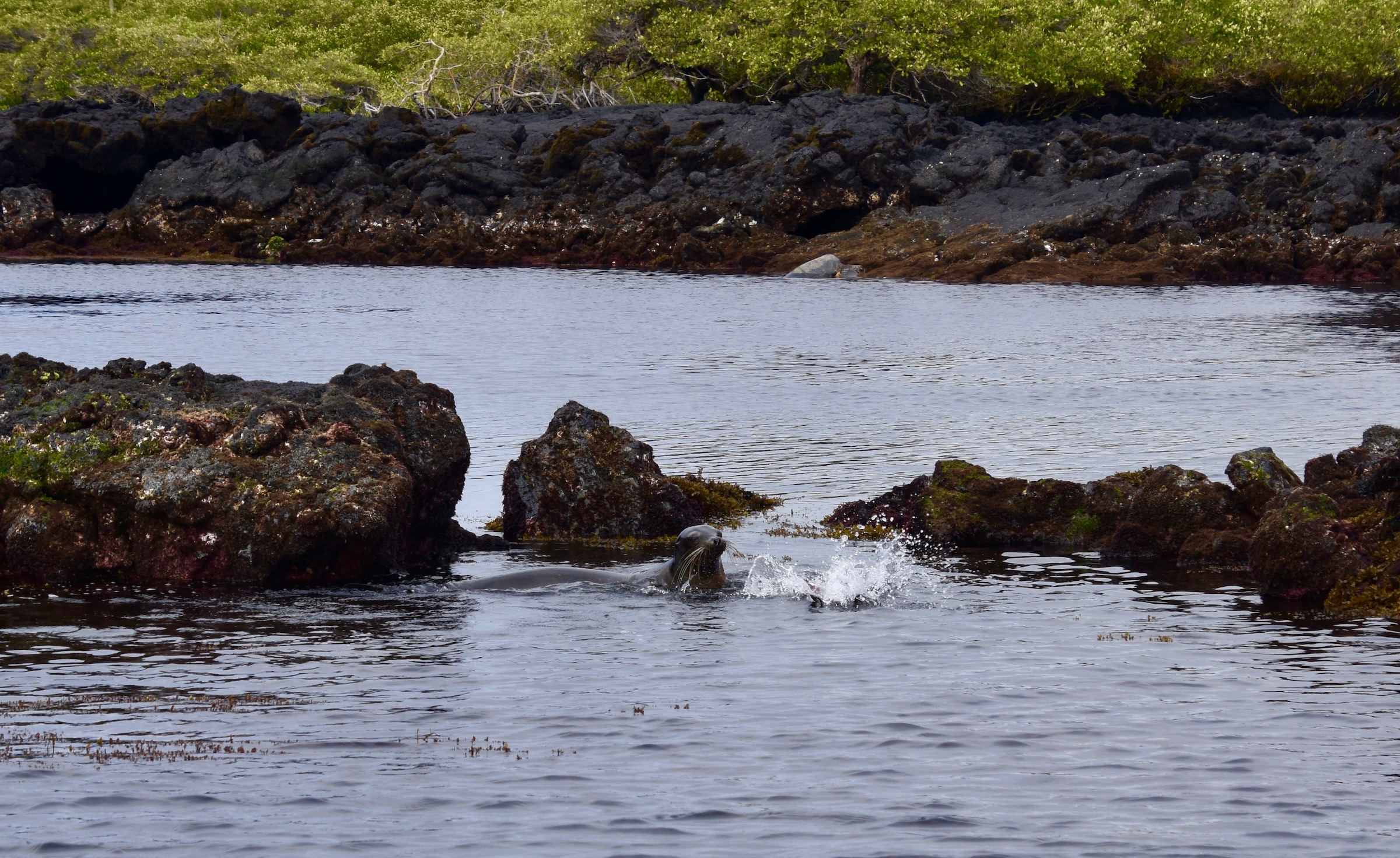
Not far from this sight our boat navigates through a narrow entrance into what appears to be a maze of channels going in every direction. In preparation for getting into the water we have donned our wet suits and snorkelling gear and are prepared to follow our local guide Pablo on a round trip through this watery labyrinth. He winks and says, “Trust me, I know what I’m doing.”
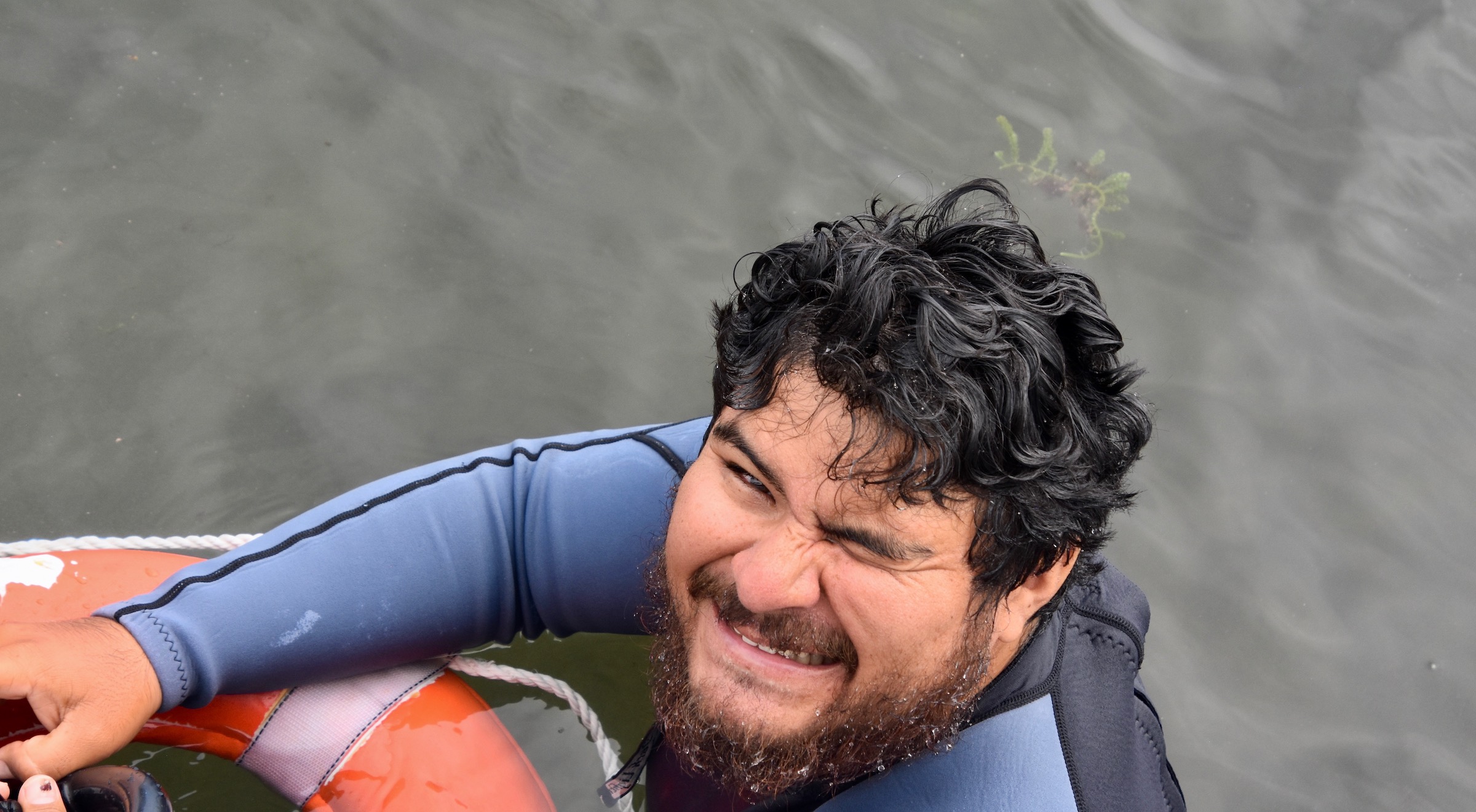
And we do trust him as we head out exploring Isabela under water with Pablo in the lead and our tour guide Alfredo bringing up the rear to make sure nobody takes a wrong turn. That’s me just behind Pablo.
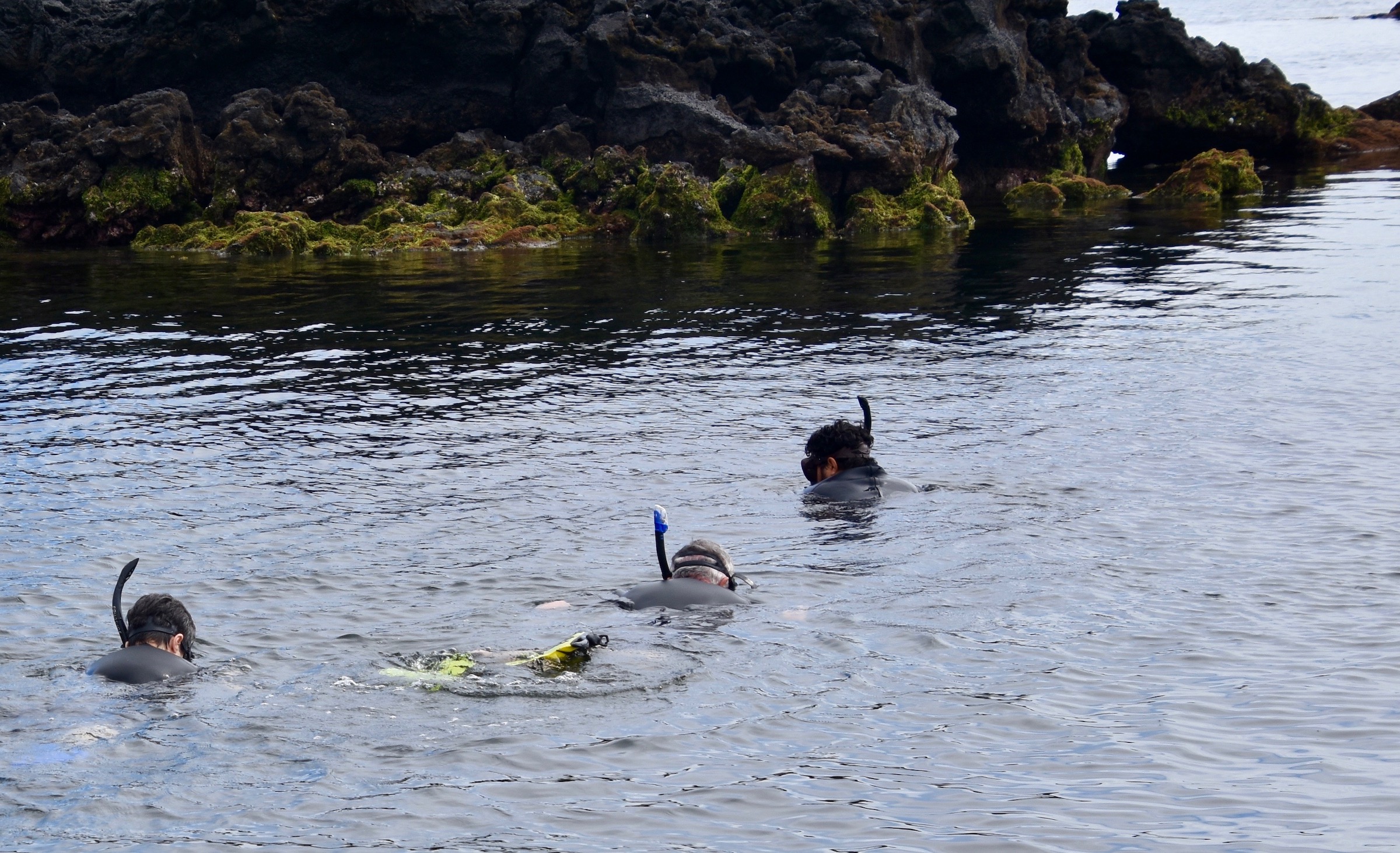
Since I am a terrible underwater photographer I have no pictures of my own to document this absolutely mind blowing snorkellng trip. Instead I include this video by Vincent C. on You Tube. It shows the same route we took and pretty well everything we saw. In particular it shows how close you can come to the green sea turtles without obviously disturbing them as they just ignore you. Likewise the white-tipped sharks. It also shows the places where you do navigate through a couple of tunnels. Without a guide you would never find you way back to the boat.
While we had a number of great snorkelling trips on the Galapagos, nothing topped this trip through Los Toneles and the look on my face after getting back on board, shows it.
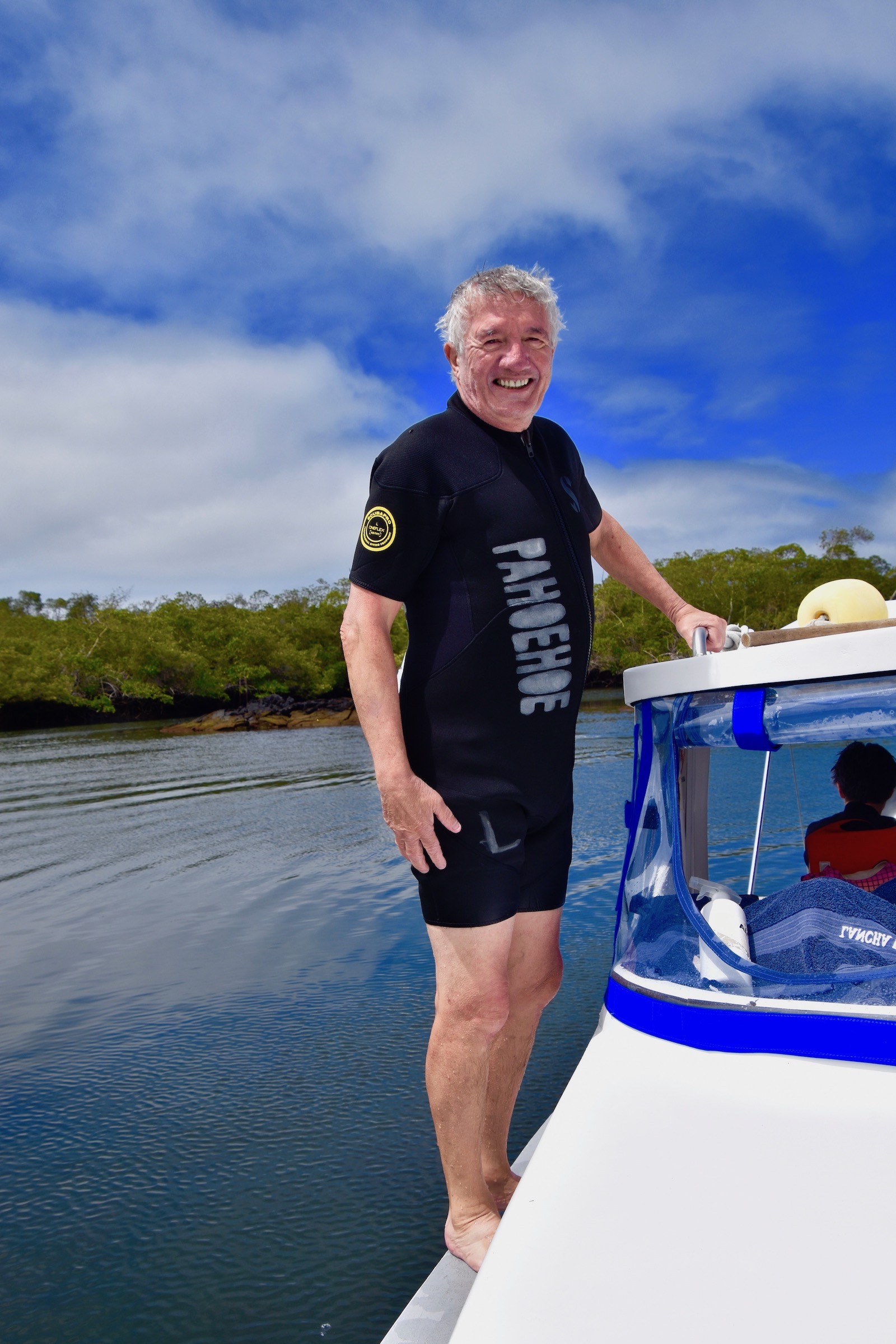
We now headed for the dry land portion of this expedition exploring Isabela, passing this little fellow along the way who like all other avians on Galapagos, was not camera shy.
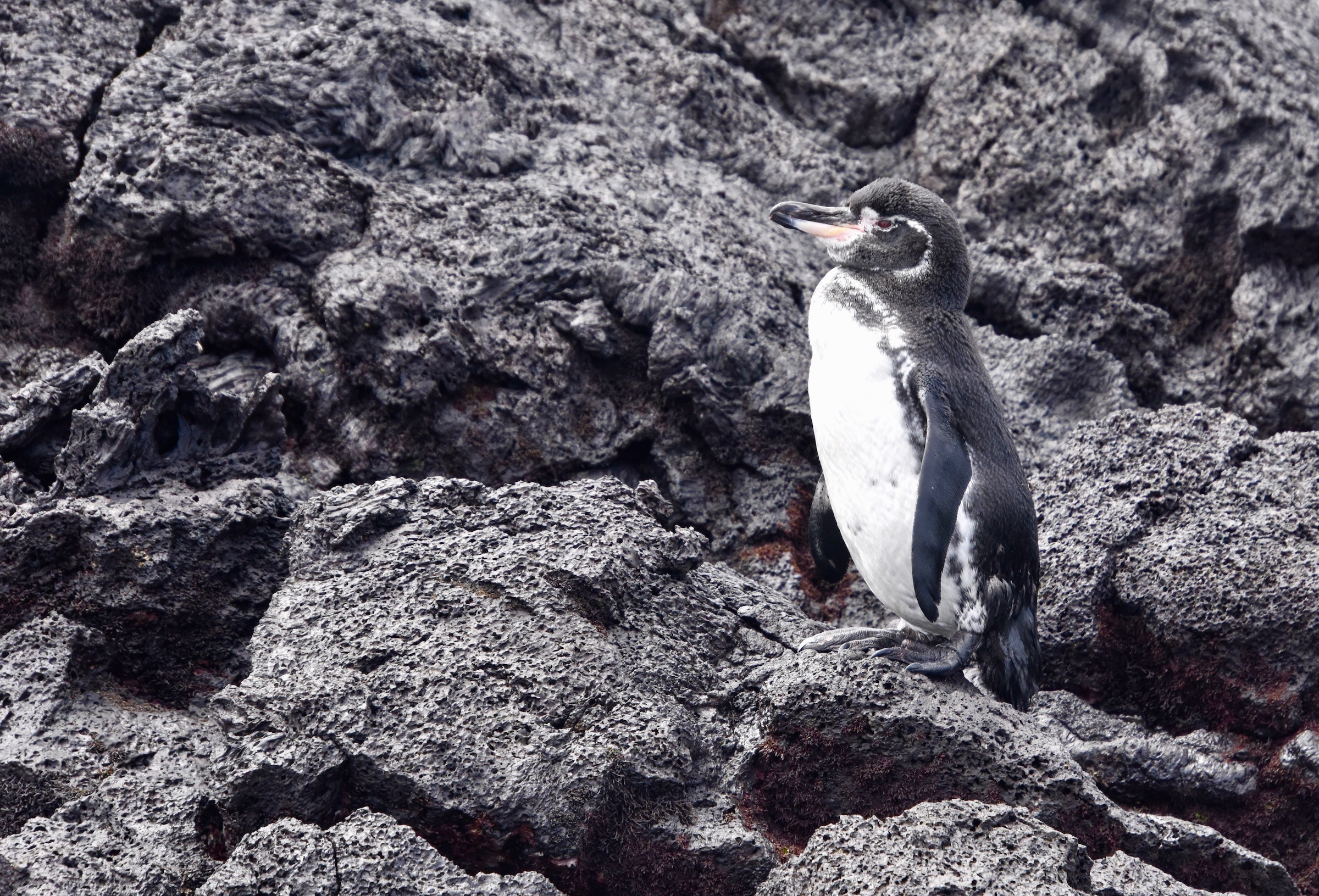
If the underwater area of Los Toneles is fascinating, so too is the part you can walk on. We entered an almost fairyland type of landscape with unusual rock formations everywhere you looked. This is turtle rock, so named for obvious reasons.
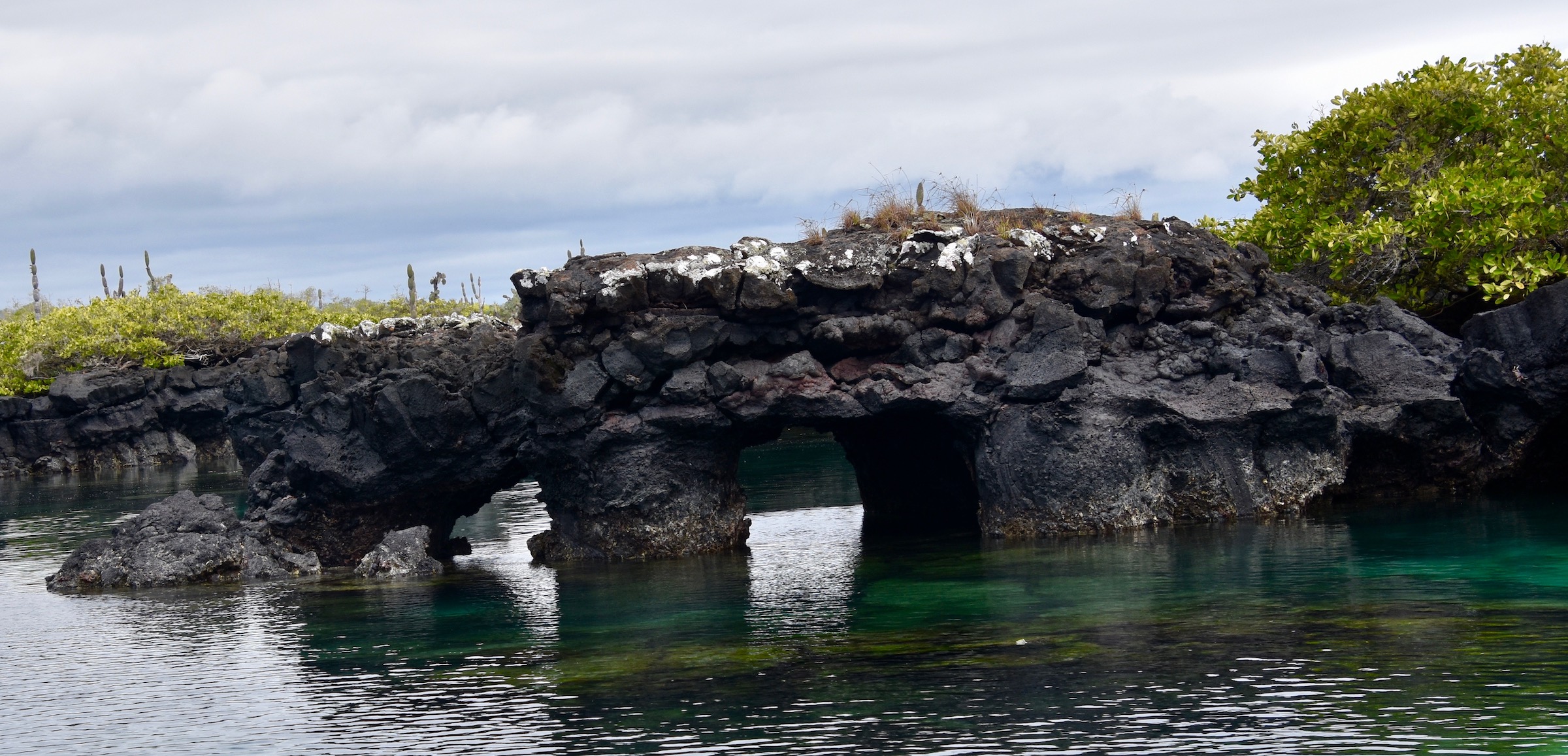
And candelabra rock.
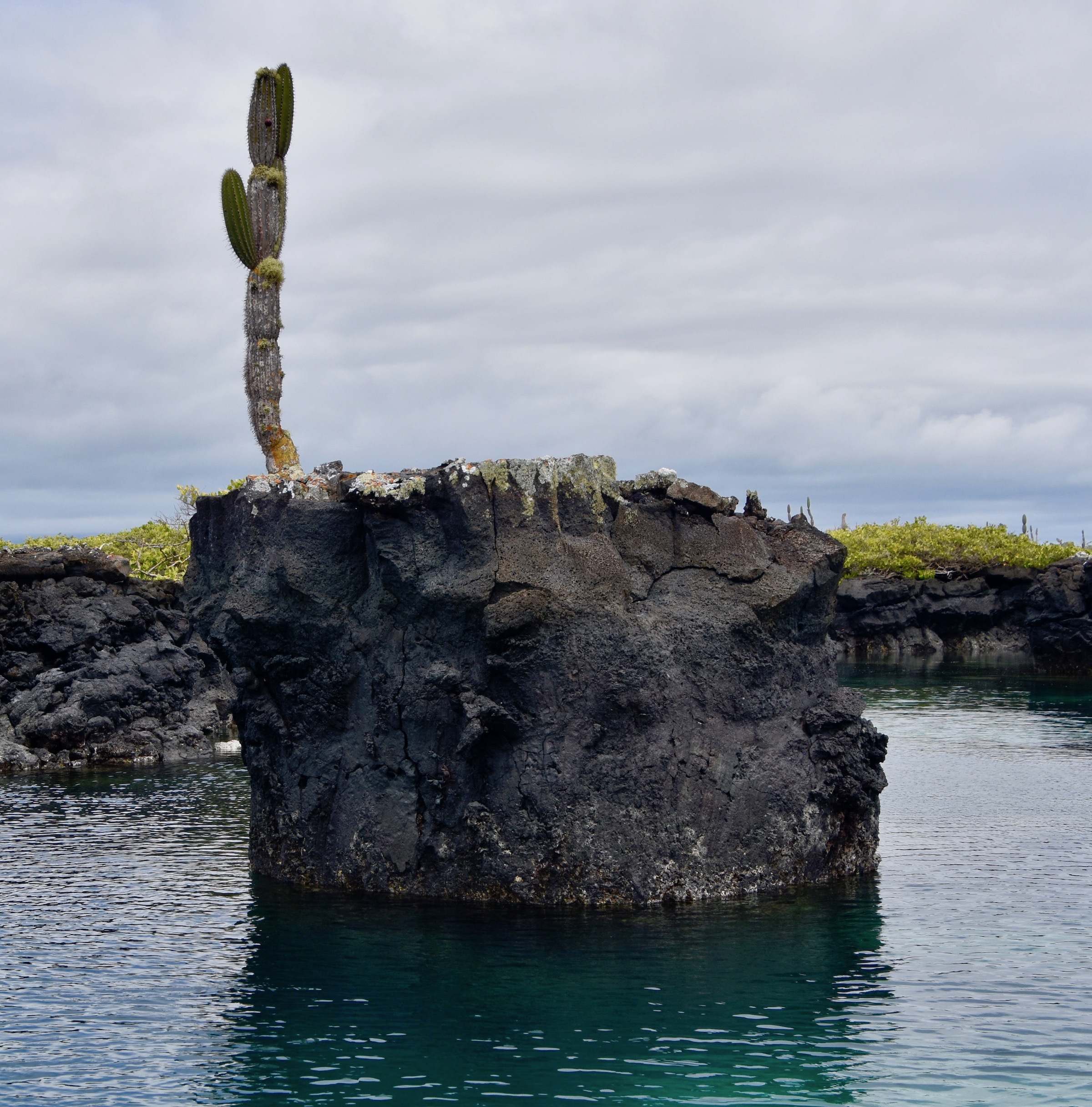
We moored in a tiny cove and scrambled up to view an otherworldly landscape unlike any I have ever seen.
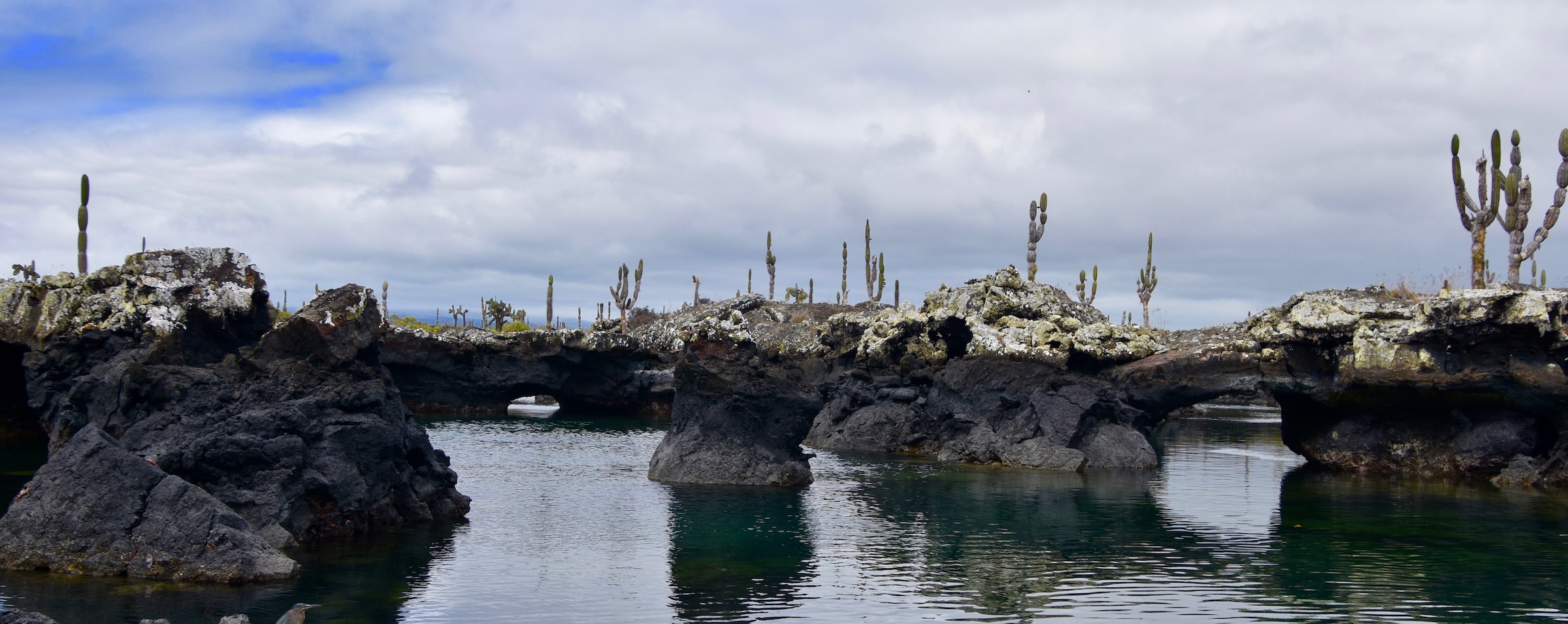
In every direction.
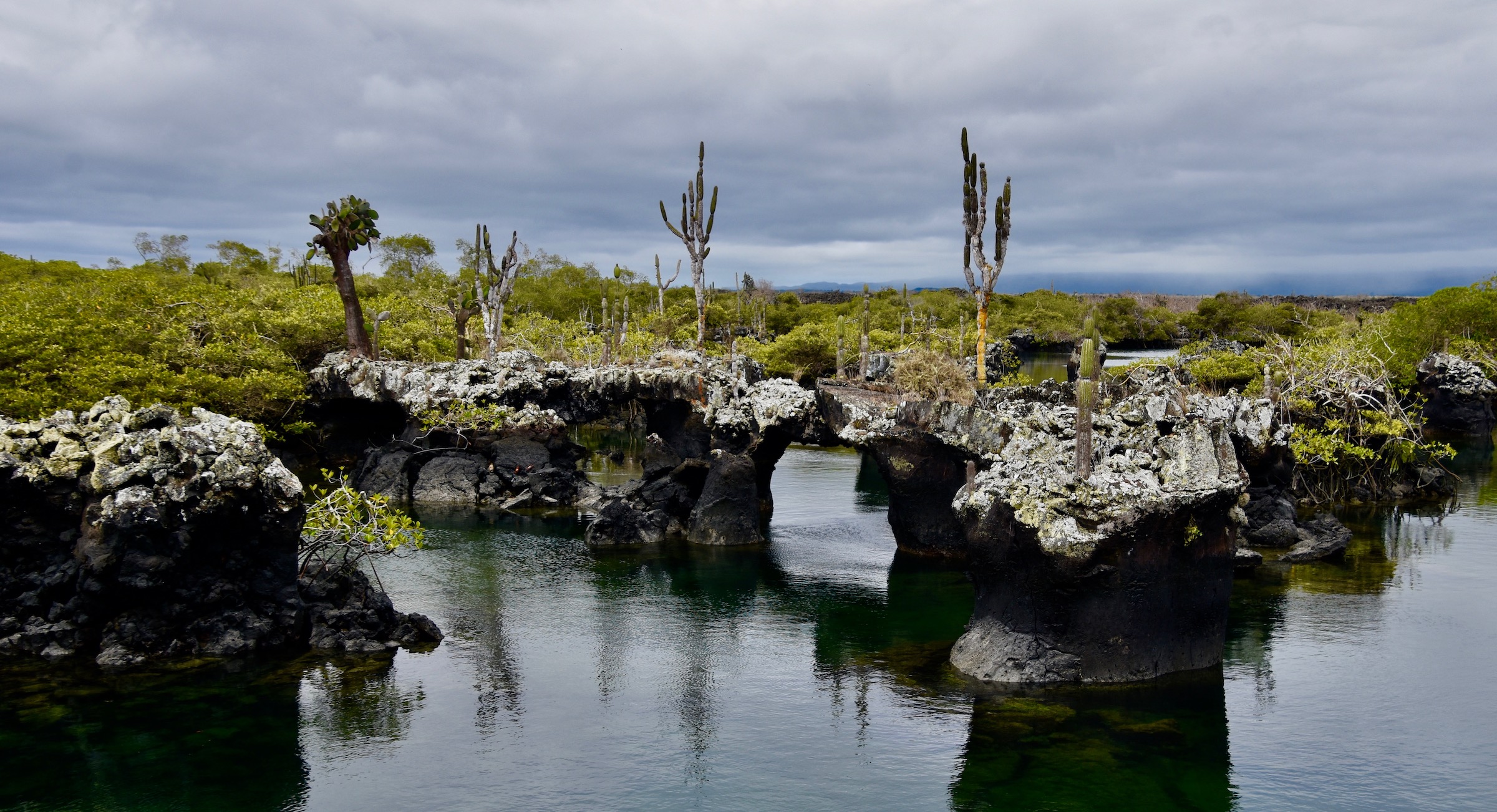
The water was crystal clear and we could see fish and turtles swimming below.
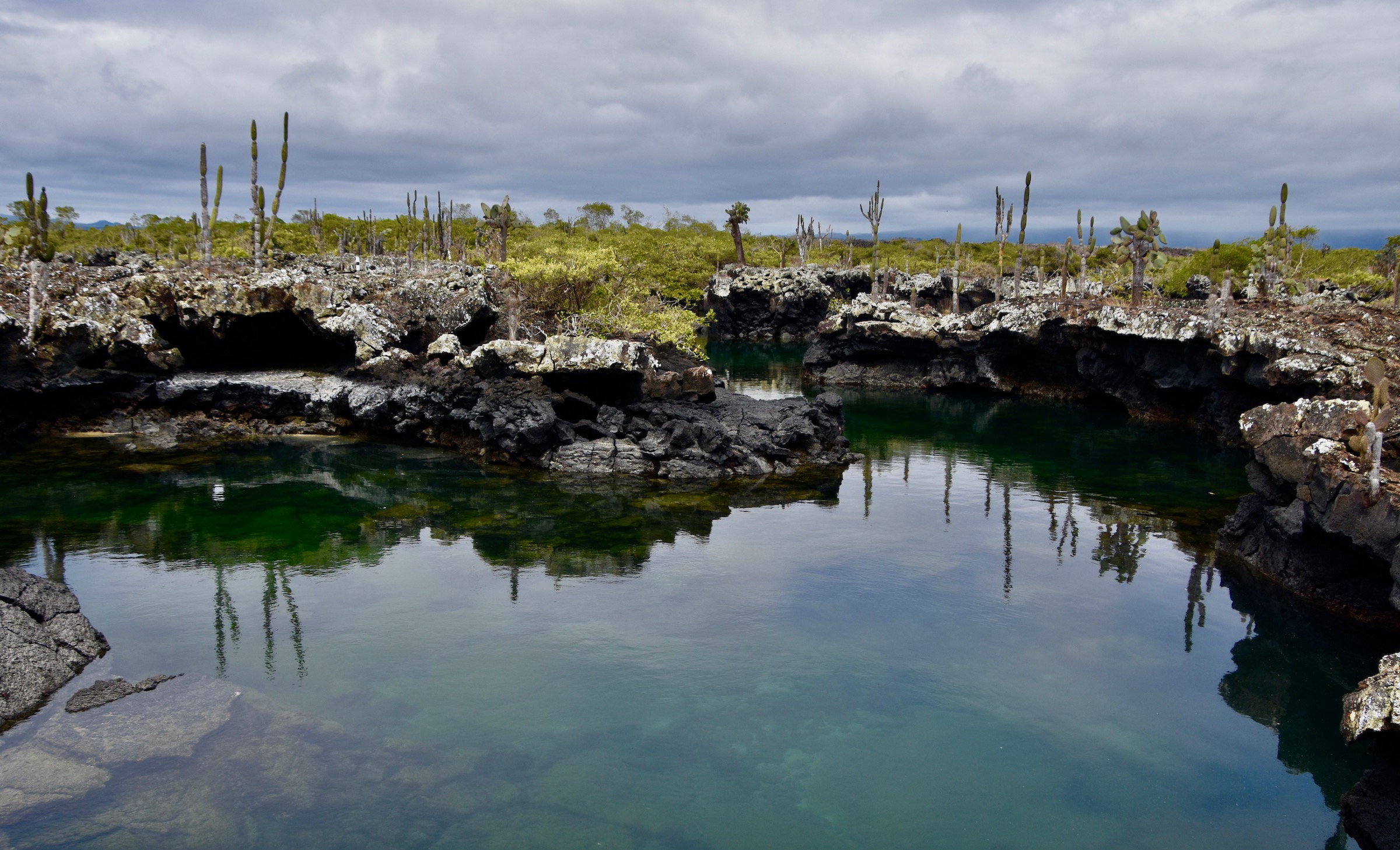
Alfredo had us stand atop one of the many arches and took the photo at the beginning of this post. I scrambled across to another smaller arch and Alison did the honours. I’m way too old to be doing this kind of s*** as I had to make a jump past an outstretched cactus to get here, but YOLO you know.
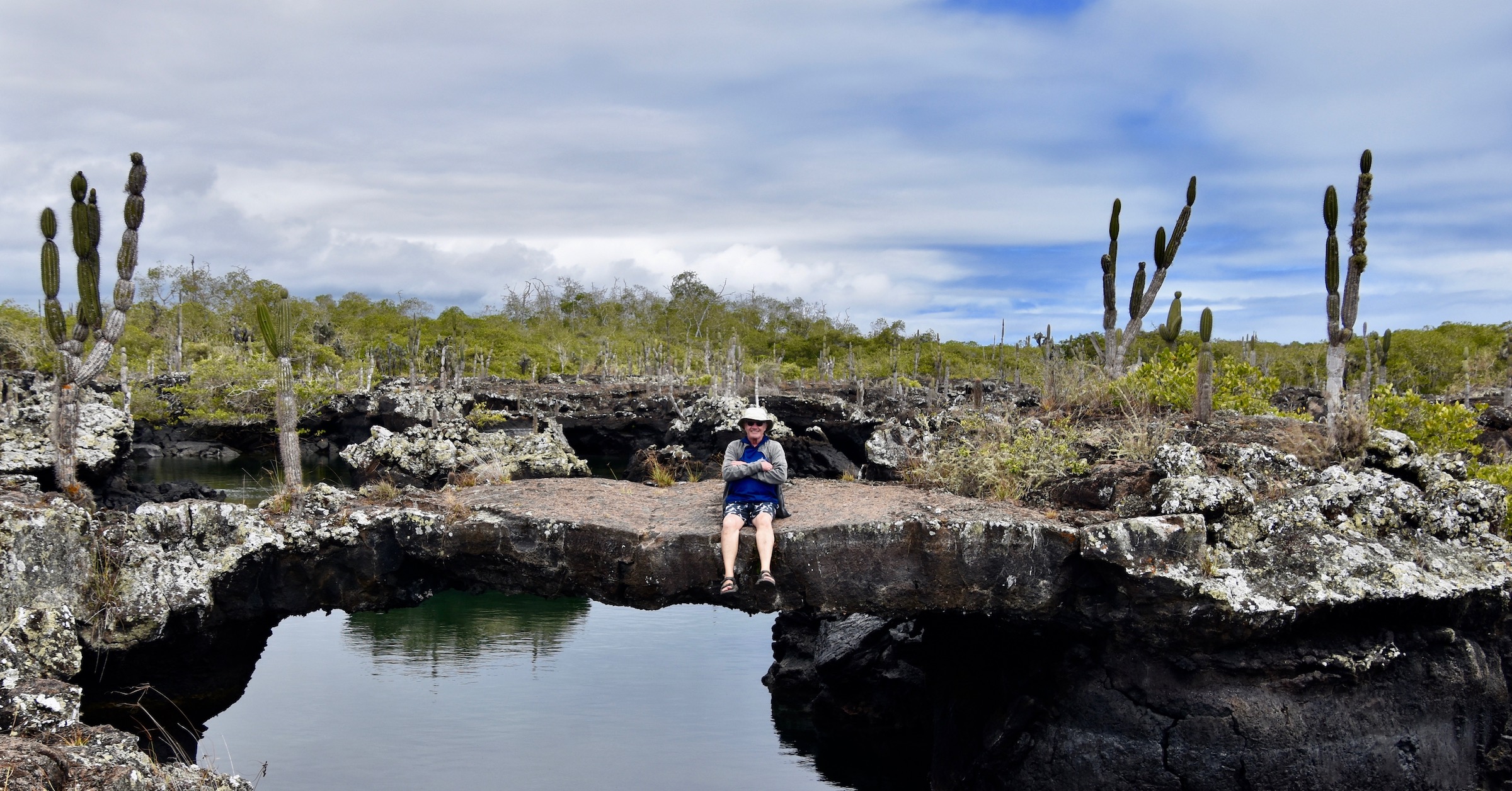
With one last look around we headed back to the boat and returned to Puerto Villamil. I doubt that I’ll ever get back here, but I’m sure glad I saw this place at least once.

Sierra Negra Trail
We were not done exploring Isabela on this action packed day. There was the option of biking or walking out to the Wall of Tears which I mentioned in the last post and several people opted to do that. Instead Alison and I chose to hike to the rim of Sierra Negra volcano to look down at one of the largest calderas on earth. There was also the hope of seeing yet another of Galapagos’ unique species, the brujo flycatcher.
Pablo arranged to have is driven via the only real road on Isabela to the starting point of the hike some half hour’s ride from Puerto Villamil. The paved road climbed steadily until it ended abruptly at a parking lot. Nearby a number of horses and mules were tethered.
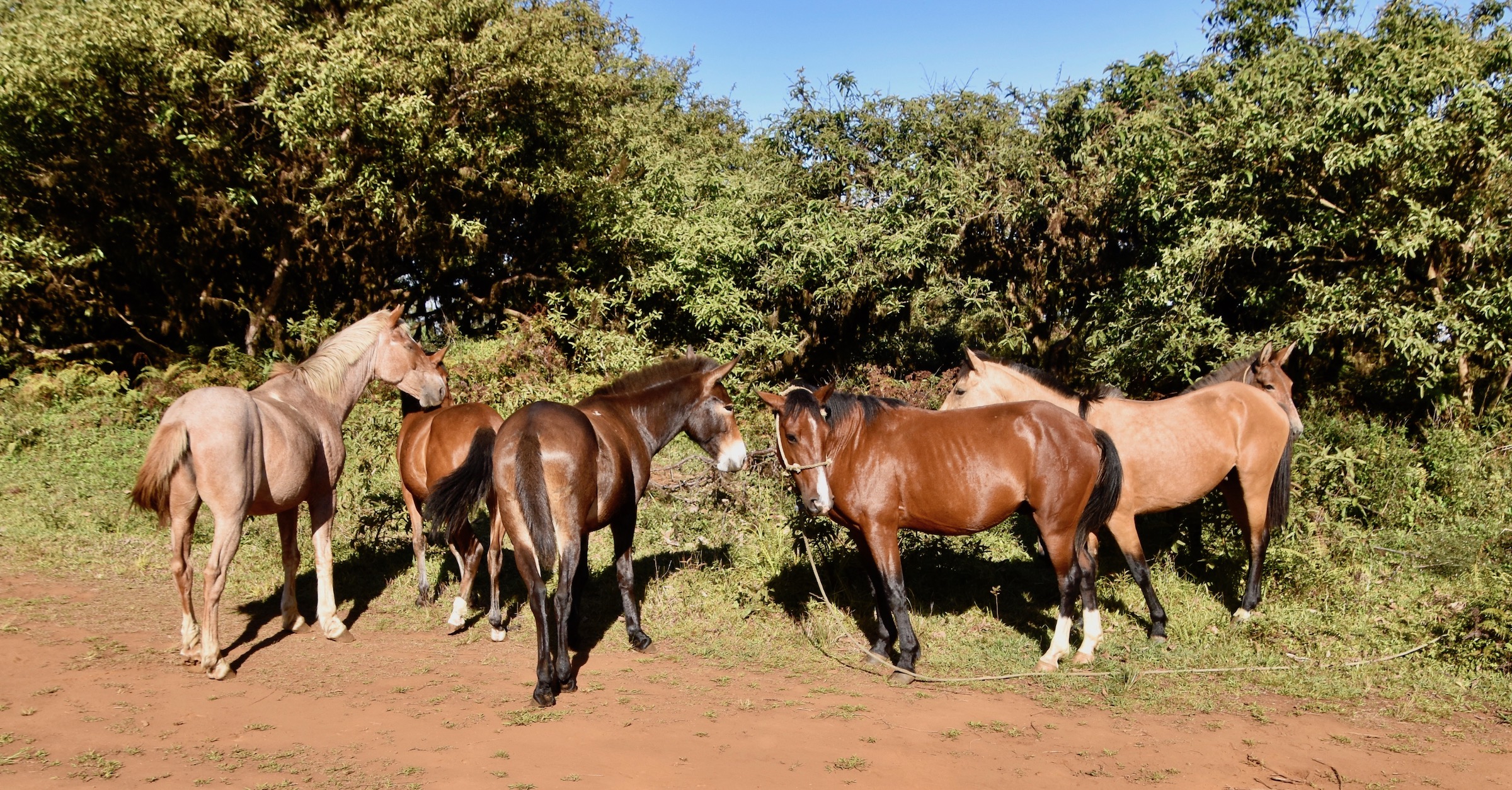
The beginning of the trail followed an old farm road and was easy walking until we were confronted by this bull who was not inclined to move. However, he was the first to blink in a staring contest and let us pass in peace.
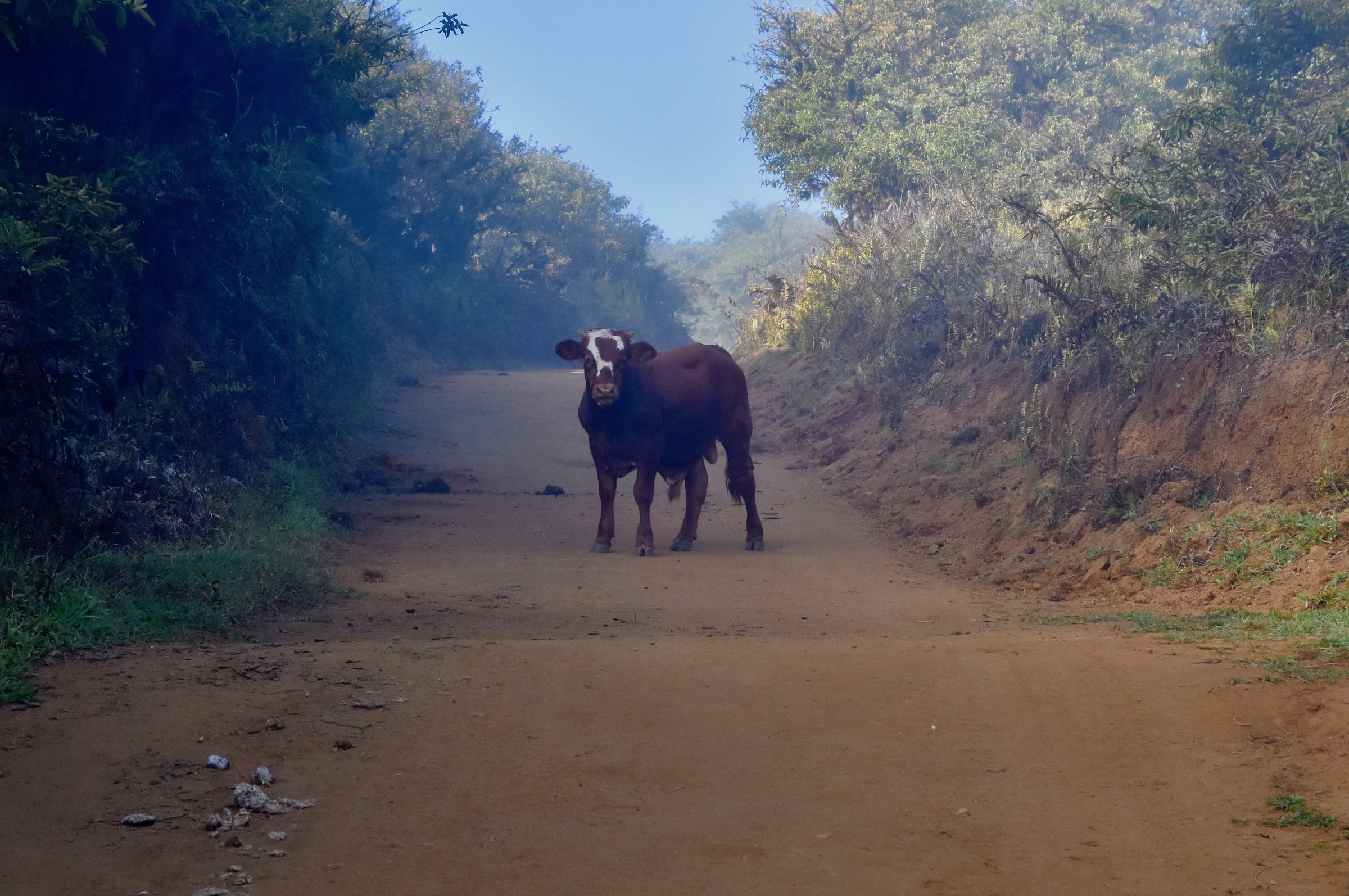
Leaving the road we followed the path steadily upward through a variety of changing habitats and struck gold on the birding meter. Not more than a few feet away this beautiful male brujo flycatcher (aka Darwin’s flycatcher) sat still for this photograph. Found only on the Galapagos archipelago it is quite rare and we were fortunate indeed to see it.
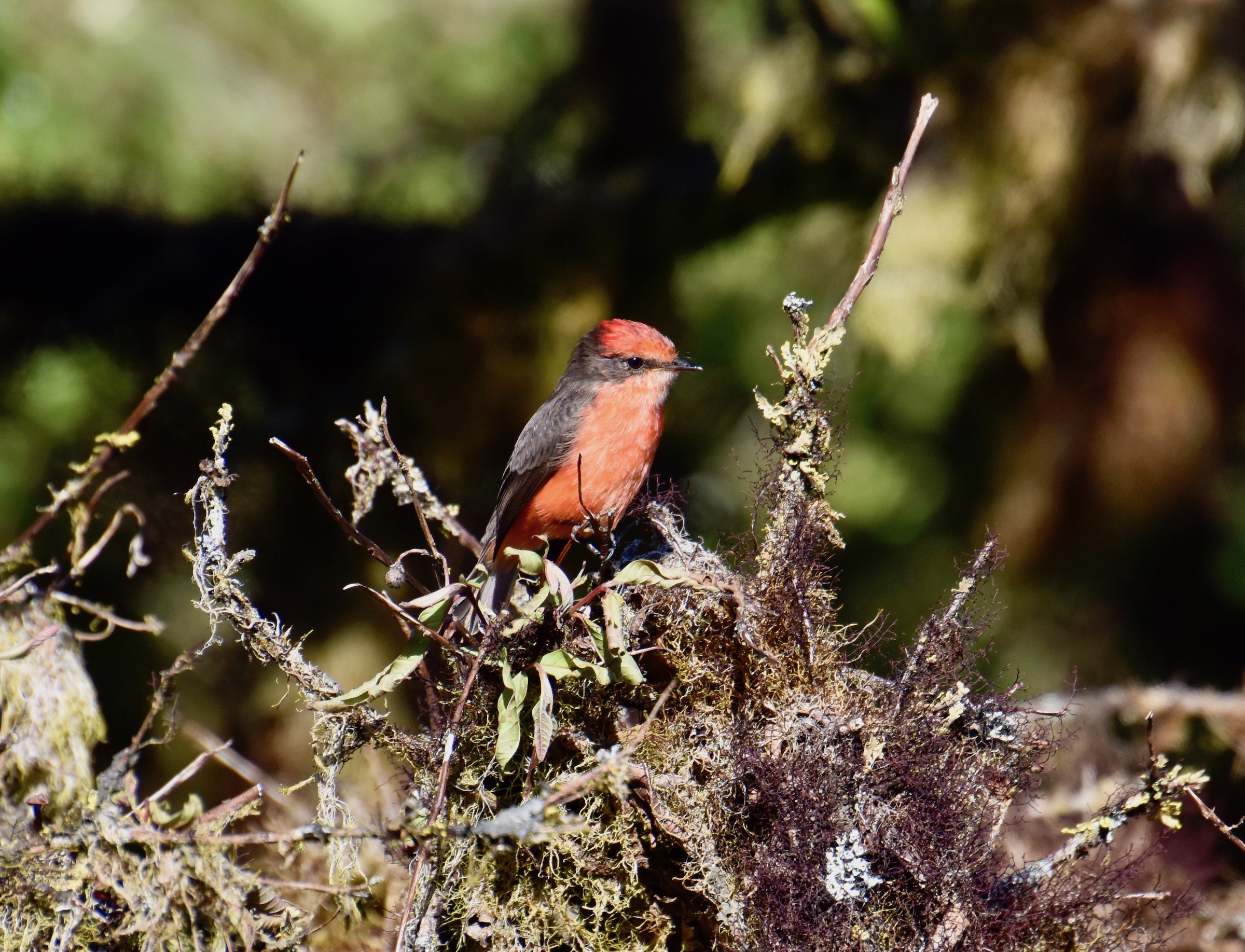
We also later spotted a female.
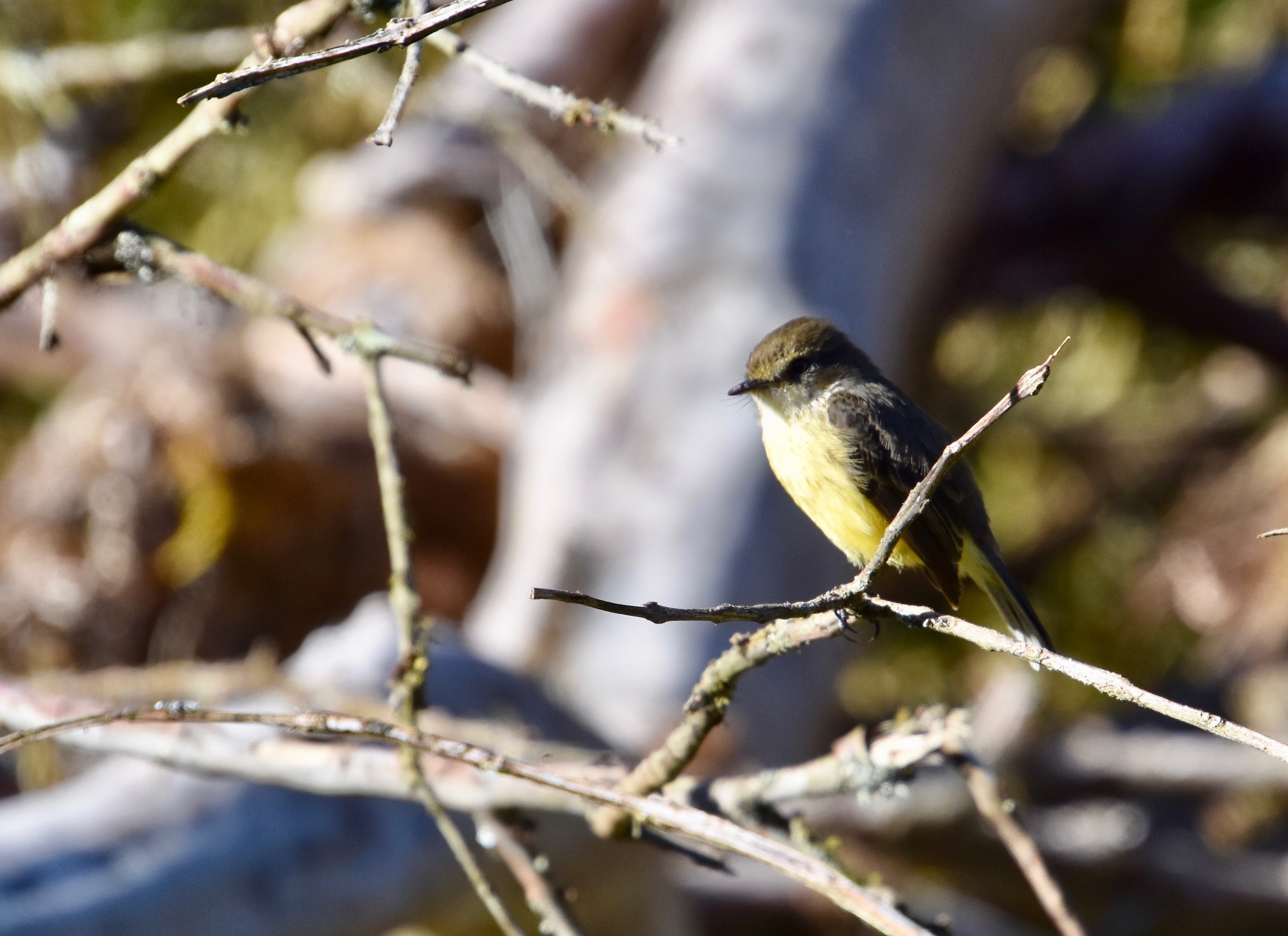
And perhaps one of their offspring, this juvenile male.
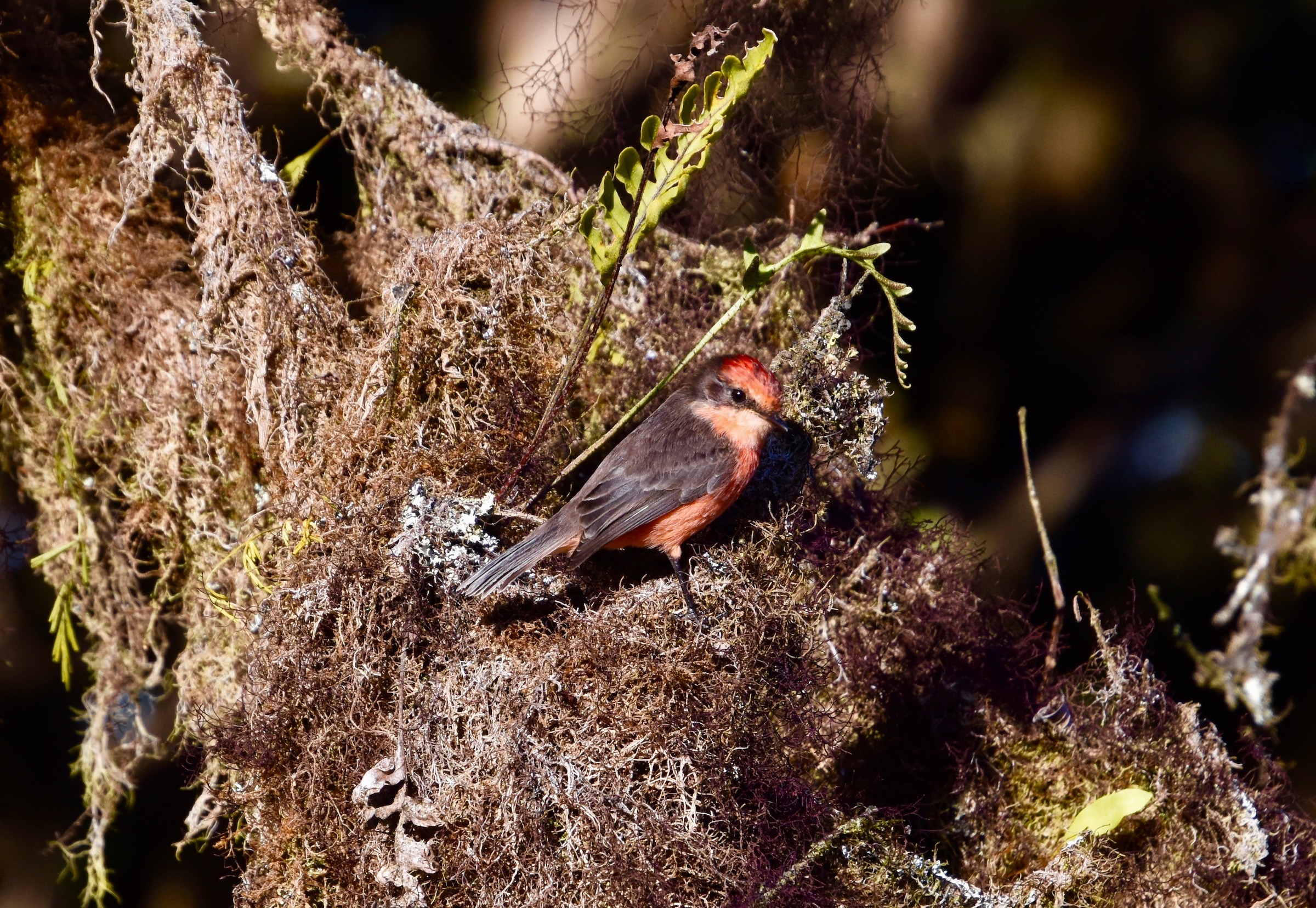
While sighting this rare bird was not guaranteed, standing at the rim of Sierra Negra volcano and viewing the second largest caldera in the world was. It is an active volcano that last erupted in 2005 and you can make your way down to the surface if you want.
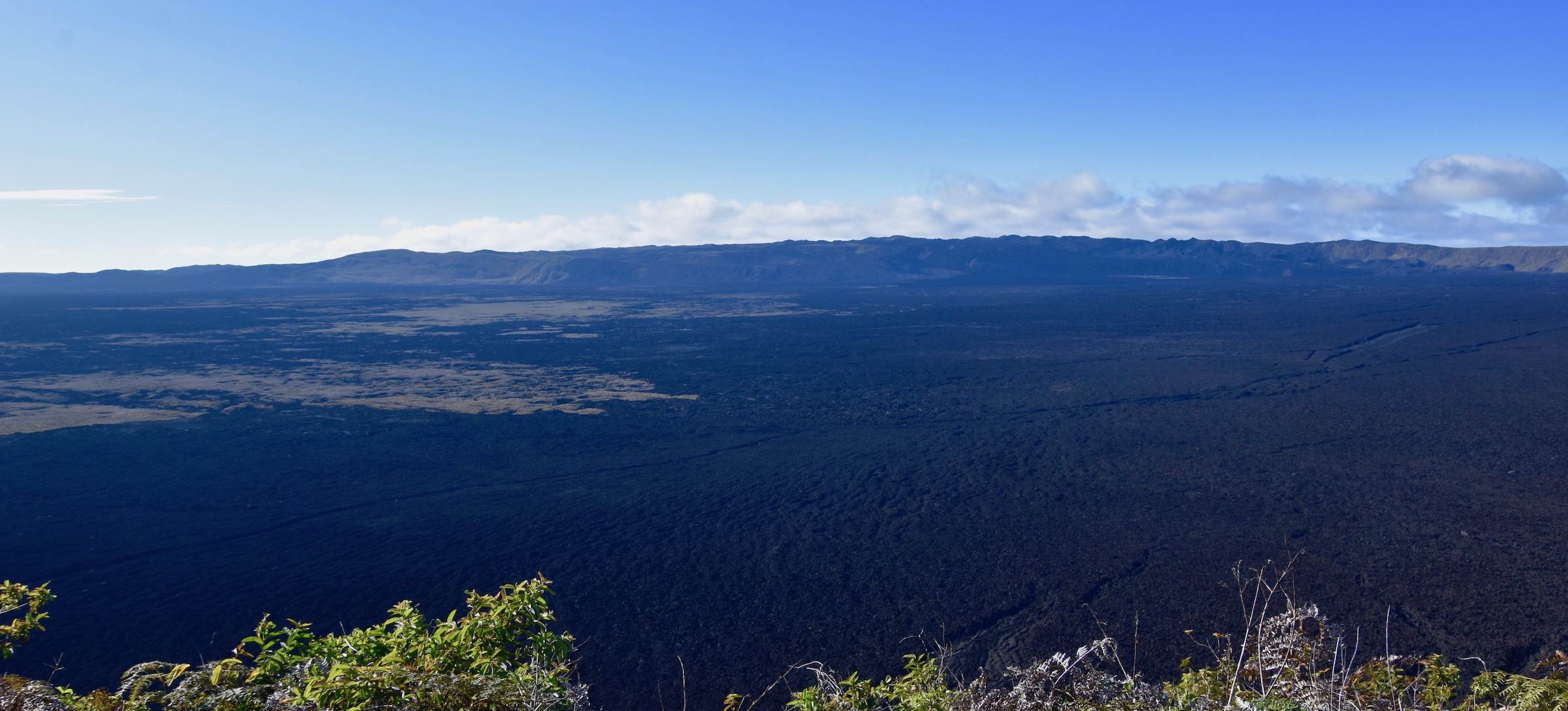
We elected instead to have Pablo take our photo on the edge.
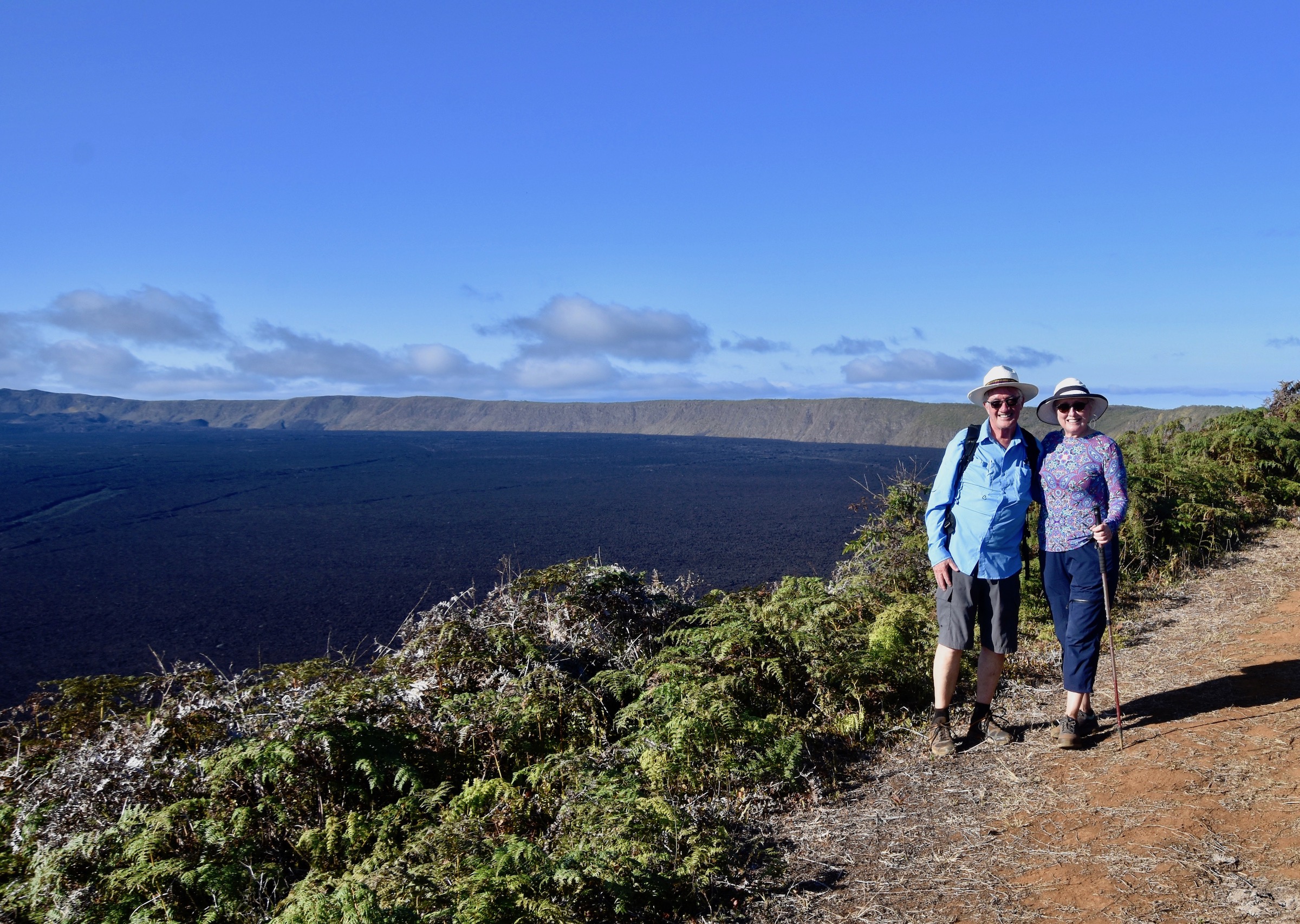
Thus ended a fantastic day in the Galapagos exploring Isabela while still leaving enough time for a few brewskis before dinner.
In the next post we’ll move on to our final stop in the Galapagos, Santa Cruz island. I hope to see you there.

